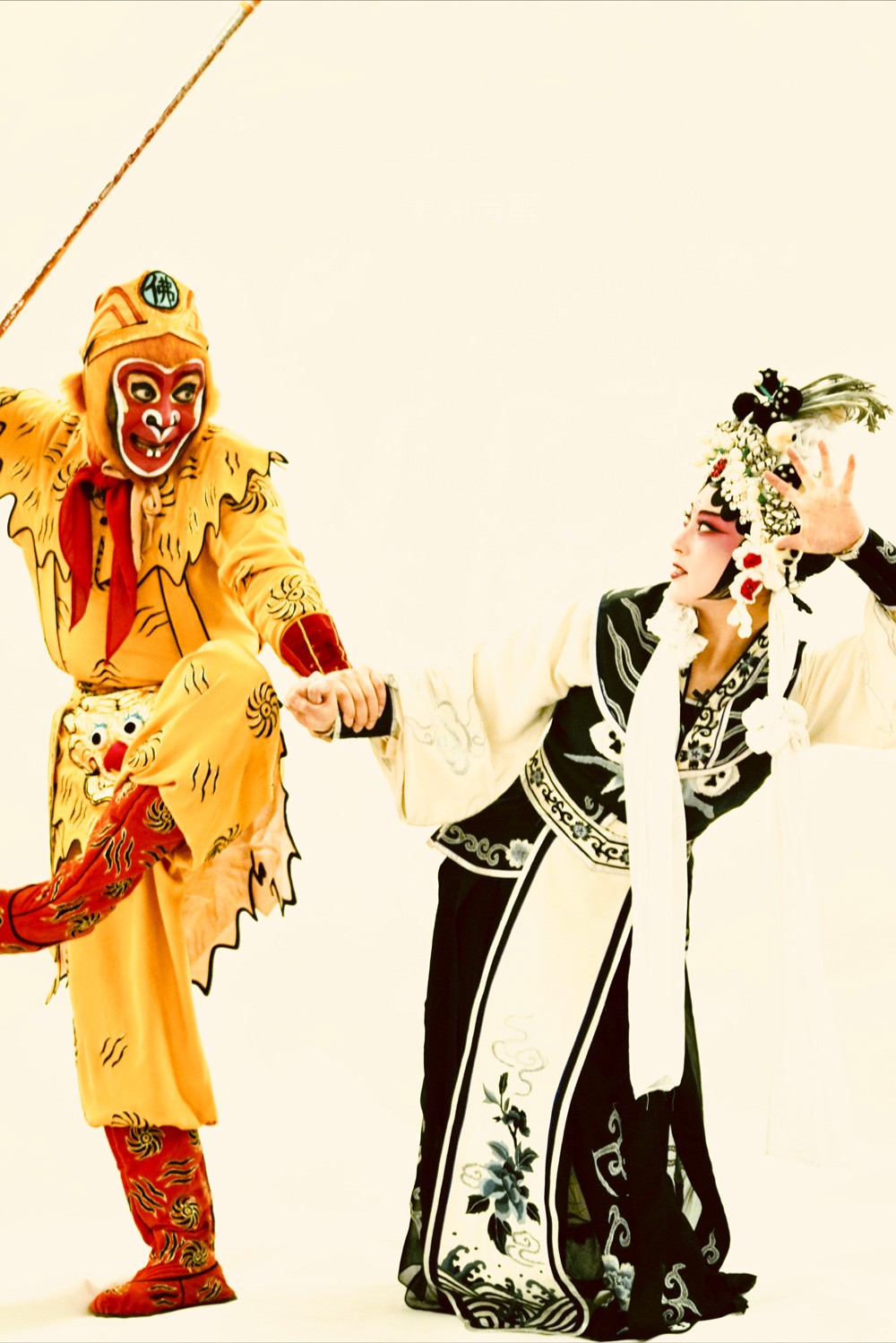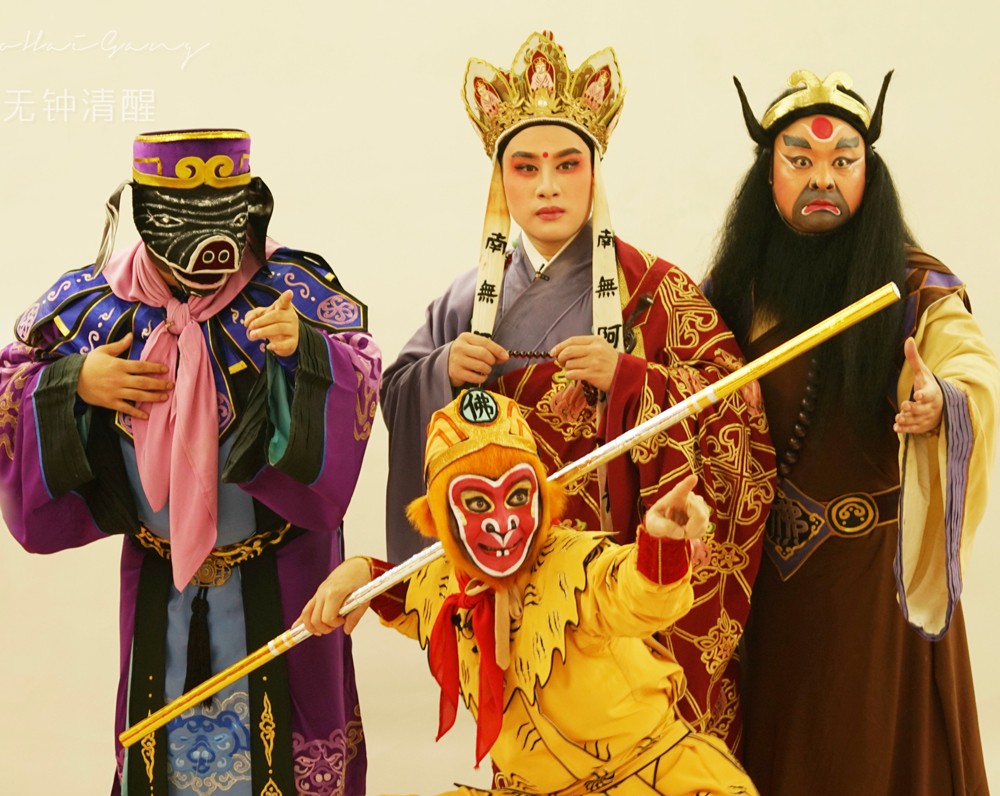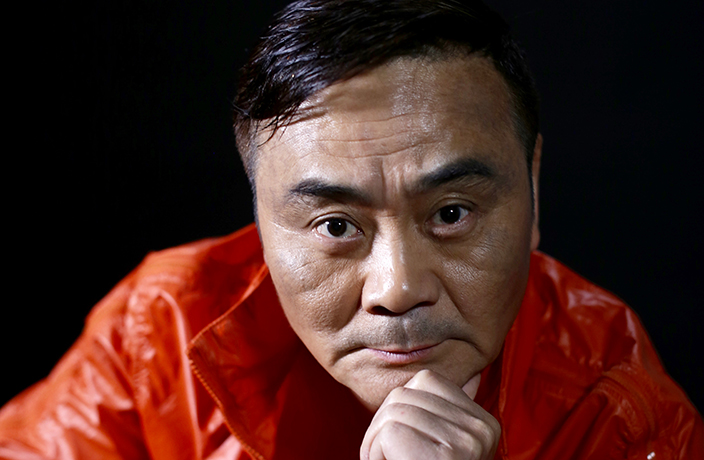This feature is part two of our June 2019 cover story. Check out the full story right here.
Shaoju is a Zhejiang-born operatic tradition rooted in rural theater, which was developed during the late 18th and 19th centuries, spreading especially in the South of China. Together with yueju, it belongs to the Shaoxing operatic tradition, which draws its name from the geographic region of the same name, and is characterized by exaggerated singing and mimicry, colorful costumes and impetuous music.
The stage adaptation of Journey to the West (Xi You Ji), one of China’s four great novels, is the crown jewel of the shaojurepertoire, and the defiant trickster character, the Monkey King, is its most representative and coveted role, requiring the actor to perform complex acting, mimicry and acrobatic routines throughout the play.
This demanding role is at the center of actor Liu Jianyang’s career. Headliner of the troupe of the Shaoxing Opera Art Research Institute, he has played the Monkey King for more than 20 years, training young generations of performers and touring the world to promote this unique art form. That’s spoke with Liu about his career, the grueling training process required to master the role and what it means to truly embody the character one plays.

When and why did you start pursuing a
career in Shao opera?
I started when I was 5. At the time, I just
liked to jump around and sing along to tapes
– I simply could not stand still. My mother
asked me if I wanted to train in shaoju and I
immediately said yes.
It was a long and painful process: there were a lot of letdowns, anger and frustrations to swallow. But I liked it and I was resilient, and discovered that it is really not that hard to do something when it’s something you love. Throughout the years, a lot of people – and even my peers – were often asking me why I did not leave to pursue a career in a city, as many young people were doing during China’s Reform and Opening-up period. I had to choose early and I had to persevere on this path to truly achieve my goal of earning my living doing what I loved.

What makes shaoju unique?
China has hundreds of regional
dramatic traditions, but I guess
the most interesting distinction
to draw is the one between shaoju and yueju. Yue
opera is also part of the Shaoxing drama style,
but is performed only by
females as it embodies
the feminine essence
– it’s very delicate and
refined. Shaoju is instead
the embodiment of the
masculine, with a forceful
style – the stance of the
46
actors has to be resolute and upright. Also, it
embodies the local style and character, as it
represents a local, decentralized and minority
taste.
When did you start embodying the
character of the Monkey King?
I always looked up to other performers [that
played the role]. During my early studies, I fell
in love with the Monkey King. I thought the
character was so compelling and I desperately
wanted a chance to play him. He was my
favorite character in the novel, too.
When I turned 16, the time came for us to pick a specialization, and we had to explore roles in order to choose the one we would play primarily in our future careers.

What are the features which define this
character, and what does an actor need to
do to bring him to life?
Ultimately, the Monkey King is a character
of great intelligence and trickery, but quite
cowardly at the same time. The original
character, like all the content that formedXi You Ji, came from oral tradition, stories
transmitted from generation to generation in
rural areas.
In those stories, the Monkey King served as an example: He has to confront countless challenges and hardships, and he has the intelligence and strength to overcome them, but what he has to learn is to really develop the right mindset to face the challenges life throws at him, and that he cannot face them alone.
“During my early studies, I fell in love with the Monkey King. I thought the character was so compelling and I desperately wanted a chance to play him”
He is not just a character, but also an essence, a state of mind. The story teaches us that it doesn’t matter how strong and talented we are, one person’s strength is limited and hardships can be overcome with the help of others.
Thus, the Monkey King embodies a deep life lesson, one that I had to also learn in the process of performing the role. It meant studying the technical side of the character, but also understanding what he really embodied and what he is supposed to communicate to the audience. He tells them that even a very strong character has flaws and weaknesses. The Monkey King is ultimately a human: He is the most powerful among all animals, yet not perfect by any means.

During the workshops and conferences
you’ve taken part in around the world,
you often apply your own makeup in
front of the audience. How long does it
take to transform into the character of the
Monkey King?
It takes me one hour to put on the makeup,
which is a traditional mask including
highlights to the nose and mouth, to
underline that the character the audience is
seeing is, indeed, an animal. And this is not
counting the time needed to dress up.
What are some of the most impactful
memories related to the characters that
you carry with you?
It was 1978 when the director of the troupe
I was working in at the time prevented
me from playing the character despite
my pleas. He wanted me to play another
character from Journey to the Westbecause no one else was available, and
that made me feel extremely frustrated.
As a defiant 17-year-old, I protested. But the director managed to convince me, making me believe I was really the only one qualified for the role. I was actually just the only other male available. Though now I know, he would have had me play the role anyway.

It is really important to try out different roles and understand the nuances of other characters we have to share the stage with. This is a fundamental step in honing our skills. It also helped me realize that this career is not about having fun or just fulfilling a dream – it is a serious and sometimes painful process. But every letdown and mistake is a key to learning. This is why I now tell the same story to my students.
[Images courtesy of Liu Jianyang and the Shaoxing Opera Art Research Institute]






















0 User Comments